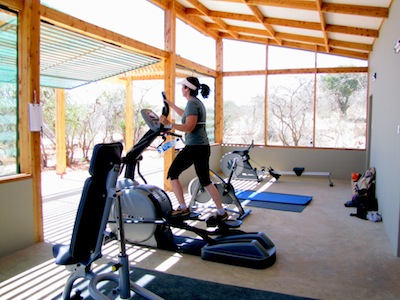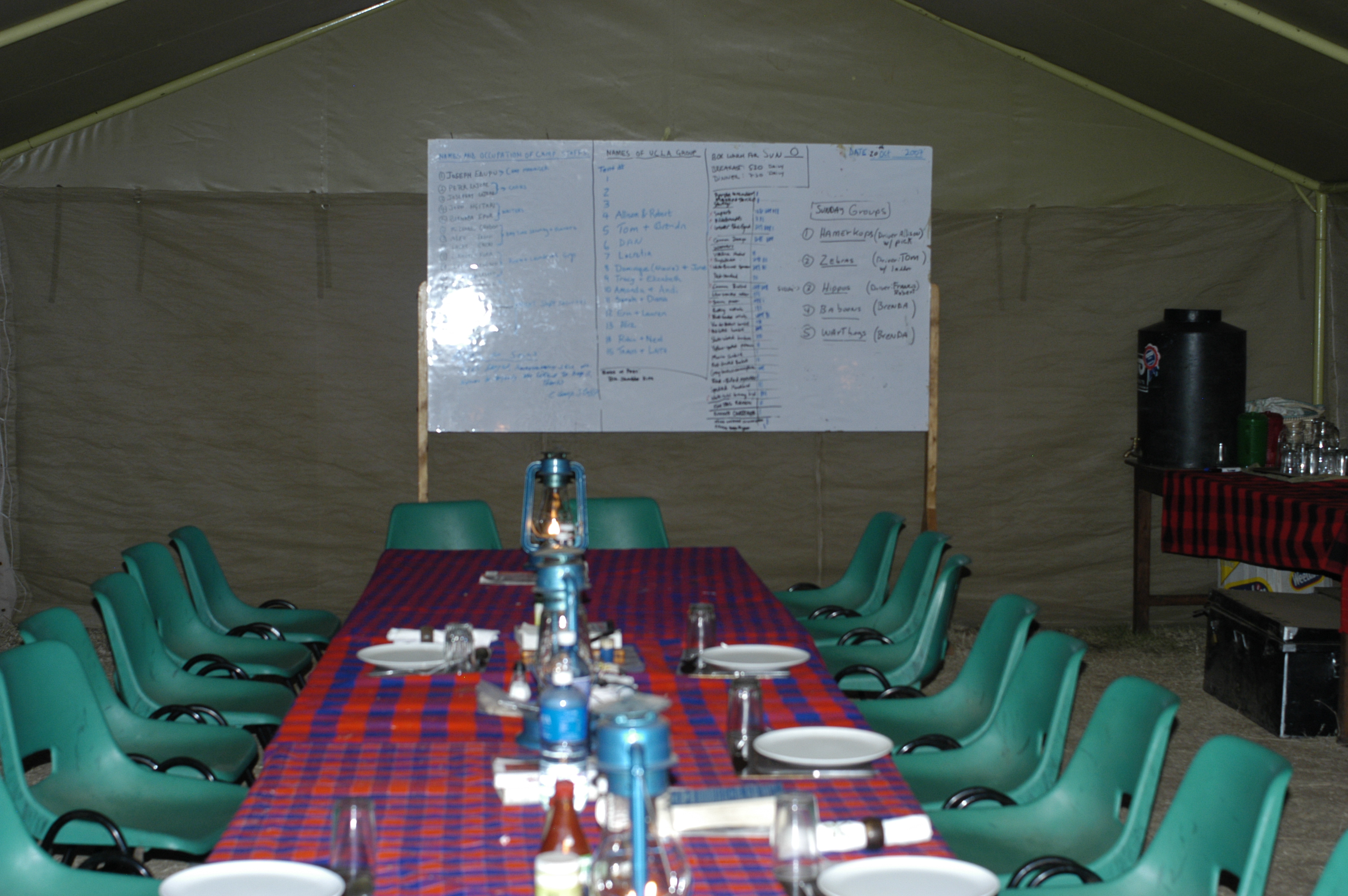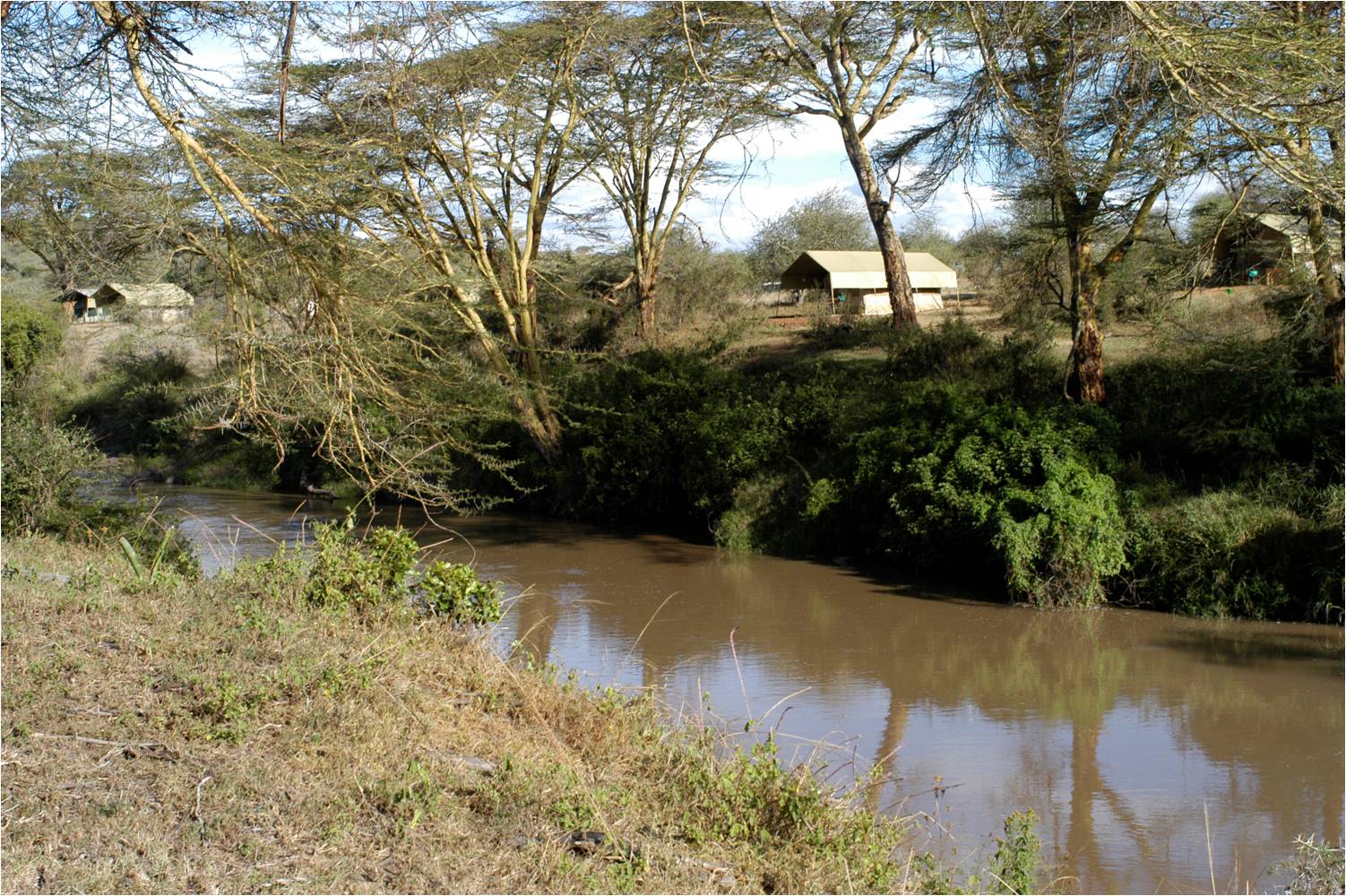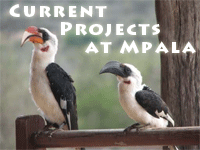Facilities

Inside the McCormack lab building. Photo courtesy of MWF.
Research
The Mpala Research Centre has housing for over 50 researchers and students. The McCormack lab building and the NSF lab building are the main facilities for research.
Mpala provides:
- Laboratory space with basic equipment for DNA analysis, microscopic examinations, analytical chemistry, computer facilities, freezer space, a "screenhouse" for potted plant experiments, a herbarium/specimen collection, field specimen holding space, and offices.
- Clean water and electricity (both 110v and 240v) in the labs on a 24-hour basis.
The Graham Library provides a comfortable reading and working area with some basic guide books to birds and mammals and reference books on ecology and conservation. There are also back copies of select African journals.
A lecture and meeting hall with a 60 seat capacity is attached to the Graham Library and is equipped with LCD powerpoint, slide, and overhead projectors.
Mpala also provides print and electronic versions of publications by Mpala researchers.Mpala dormitories. Photos courtesy of MWF.
Accomodation
The Mpala Research Centre provides comfortable accommodation in:
* 4 single and 6 shared rondavals (bandas)
* The Keller dormitory, which has 2 rooms (one for females and the other for males) and accommodates 14 in total
* A Princeton-funded dormitory, with 2 singles and 4 twin-sharing rooms (with shared bathrooms)
* 4 two-bedroom houses
* 1 single bedroom house
* 2 private bungalows
The houses and private bungalows have fully equipped kitchens and offer the option of self-catering. The campus also contains a communal dining hall and outdoor eating areas.
The Levinson Gym
Thanks to a generous contribution from Dr. Frank Levinson, Mpala now has its own gym. The Levinson gym is well-kitted with an assortment of equipment to make your heart pound and muscles ache. But this is not your ordinary gym. An astronomer and physicist by training and philanthropist by heart, Frank is passionate about green construction. He insisted that the building be as much an experiment in green design as a functional gym. The new, half-walled structure has a big underground cistern for rainwater catchment and storage, solar powered electricity and hot water, low-flush toilets and low-use shower heads on timers. Over the summer, engineering students from University of Michigan and Princeton University will rig ways for gym-goers to produce energy or pump rainwater from the cistern as they exercise.

Inside the Levinson gym. Photo courtesy of MWF.
Other Resources
Additional infrastructure includes administration offices, a GIS facility, kitchens, storage, laundry, workshop, garage, and a staff village.
Electrical generators operate at 200-250 Volts from 6:30am to 9:30am, and from 6:00pm to 10:00pm. Power at 240V and 110V is available on a 24hr basis in the labs and offices. Hot water is available in morning and evening hours. Fax, phone and email communications are available 24 hours a day. Internal communications exist in the form of a VHF radio network.
Ewaso Ng'iro River Camp


The Ewaso Ng'iro River Camp
Mpala runs a tented camp located 4 km from the research centre along the Ewaso Ng'iro River. The camp regularly hosts field courses for undergraduate students from US, Canadian, Kenyan and European Universities as well as international groups brought in by the Tropical Biology Association (TBA) and workshops for Kenyan professionals.
The camp has 16 fully furnished sleeping tents with single and double accomodation, blocks of showers and toilets and a large combination mess and lecture tent which can seat 50 people. All tents are mounted on concrete platforms with comfortable verandas that overlook the Ewaso Ng'iro River. Mpala provides generator power to supply electricity for lighting and projectors and we enable campers to charge computers and other battery operated items.
Services
Additional facilities and services offered to researchers include:
- Access to a natural savanna habitat for both small and large-scale ecological experimentations at local, landscape and regional levels.
- Assistance with acquiring research clearance, pupil's pass and export permits from the Kenya Government.
- Experienced local guides/assistants for hire.
- Access to laboratory, library services and Mpala databases


